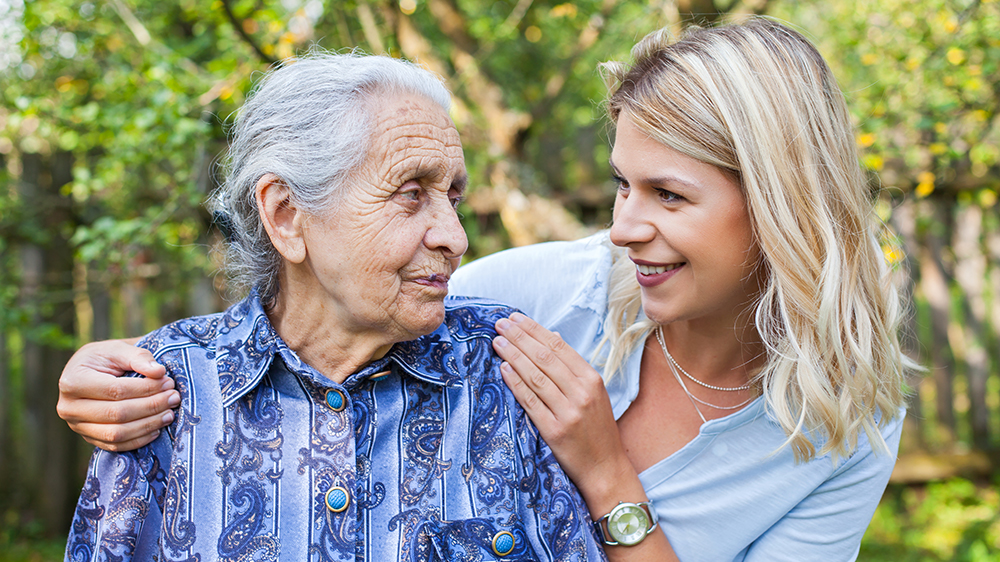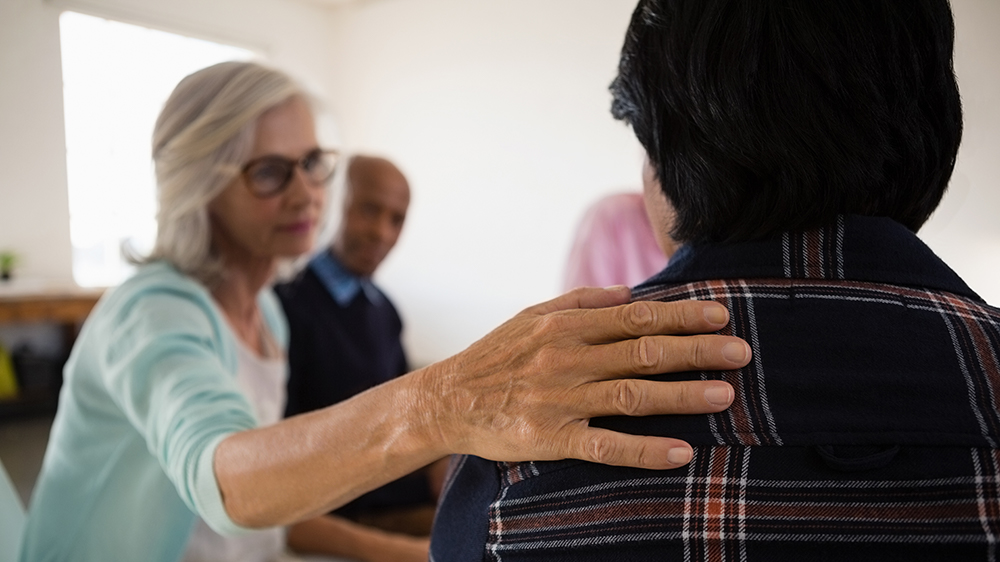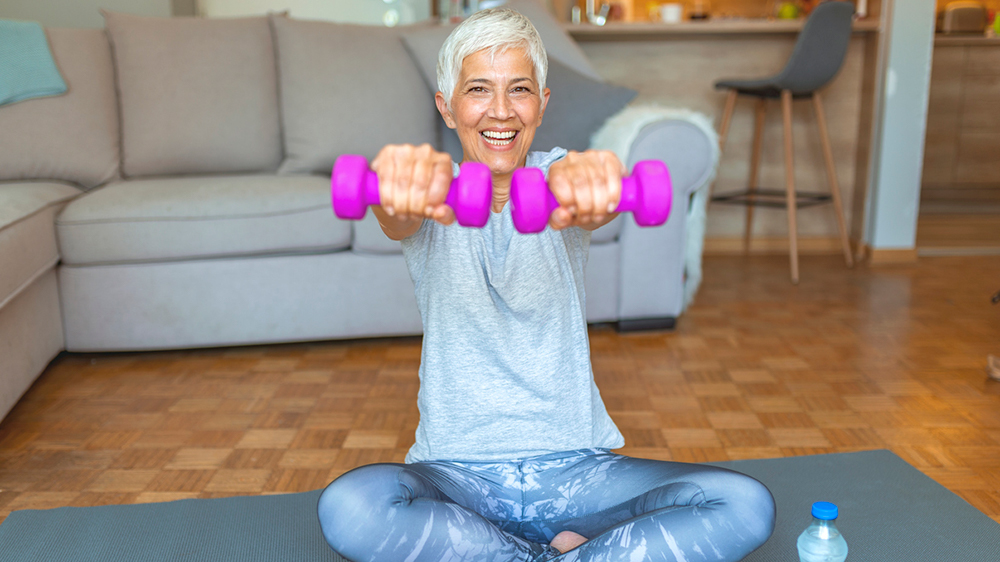While everyone is doing their best to deal with the impact of COVID-19, one group of people may be affected more than most: caregivers. Caregivers are people who take on the crucial role of caring for others who can no longer care for themselves.
Sister Kathleen Weber coordinates the Holy Cross Caregiver Resource Center and has spent thousands of hours during her tenure advising caregivers and leading support groups. She has also seen first-hand the impact of COVID-19 on caregivers. Here’s what Sister Kathy says about caregiving in this era of social distancing and how to cope.
What are caregivers’ typical responsibilities?
Their first responsibility is taking care of themselves so that they're able to also care for their loved one. Their other responsibilities depend on the situation. Sometimes it's just keeping an eye on their loved one and making sure they're safe or eating correctly. Or it can mean providing hands-on personal care or hiring someone to do that.
Caregivers also make big decisions about whether or not their loved one belongs in a care facility and could get better care that way.
Prior to COVID-19, what were some of the ways caregivers could find support?
Caregiving is sometimes very hard, so caregivers need a strong support system. It can't be just one person. They've got to have help, input and support for themselves. Support usually comes from family members, religious leaders, friends, and professionals like therapists and care managers.
There are also caregiver support groups. While Holy Cross Health's in-person groups are paused, we offer virtual support groups where caregivers can talk candidly about what they’re experiencing and support one another.
How has COVID-19 and a "new normal" of social distancing changed caregivers’ lives?
It's made an already difficult situation even more challenging for both the caregiver and the care receiver.
If the care receivers are in a facility, they have not been able to see family members physically for several months. And that is awful for them. Some facilities will let family members come to a window or do virtual calls, but if the person has dementia, it’s so confusing that it may not be worth it. They can hear the voice and see the person, but they can't figure out why they're not there, why they can't touch them. It’s difficult to explain it to them because it’s probably not something they’ve ever experienced before, or it is out of their capacity to understand.
For the caregivers, it's also very difficult. They can't get to their loved one to talk to them and see how they're really doing. And they're frustrated and angry.
What about people who are caring for someone at home?
That is really hard too, and they probably need more help with caregiving because of all the limitations they’re experiencing right now.
It can also be very difficult to explain to their family member why they can't go out, why they can’t do what they want to do, or why they must wear a mask. Remember, not all care receivers are necessarily homebound, like the people who used to come to our adult day center.
How have available services changed?
Some programs that provide in-person caregiver relief, like the Holy Cross Medical Adult Day Center, have had to temporarily close to follow CDC guidelines and ensure the safety of participants and colleagues. We have staff calling family members every day to see how they’re doing and to see if they have any needs that aren’t being met. We also call and talk to the people in care as well to try and keep a connection that way.
What are some ways for caregivers to ease their burden?
Find a support group, like the virtual ones we’re doing now. Or try talking to someone you know. Don’t try to keep it all in. You need to let it all out, let someone know how you’re feeling, and share that emotional burden.
You also need to be eating well, sleeping well, getting some exercise–all those things you’d normally do for your own health.
And most importantly, try to find a way to make time for yourself, maybe it’s when your loved one is sleeping. Whatever your way of relaxing is, whether it’s watching a movie or television, you need to do it.
Holy Cross Health offers a variety of virtual fitness classes that you can participate in from the comfort of your home, including tai chi, Pilates, yoga and more.
What are the benefits of participating in a support group?
Caregivers benefit from participating in a support group in many ways. Support groups are confidential, and the caregivers are free to share their successes, disappointments, feelings, and frustrations with those who are experiencing many of the same emotions.
Sharing those feelings with a doctor, friend or relative is okay but not nearly as helpful as sharing them with people who are going through the same struggles as you are. Fellow caregivers can understand, empathize and encourage like no one else because they are walking in the same shoes. They can also offer helpful suggestions and help you understand why some practice or attempt may not have been as successful as you had hoped.
In some groups, the bonding among members is so strong that some remain in the group after the death of their loved one. It is not unusual for social bonding and fast friendships to be formed outside of the support group itself.
Is there anything else you can think of that might help?
Seek help from Montgomery County, especially if you’re caring for someone who is aging or has disabilities. There are people there for you when you have an issue, and sometimes there are aids available for people with financial needs.
You can also get help, support and education from professional groups, such as the Alzheimer's Association.
Resources
Additional Resources
Holy Cross Health presents the information in this blog as a resource for our community. It is not intended to replace professional medical advice or to endorse any particular entity or service. Personal health problems should be brought to the attention of the appropriate health professionals.




